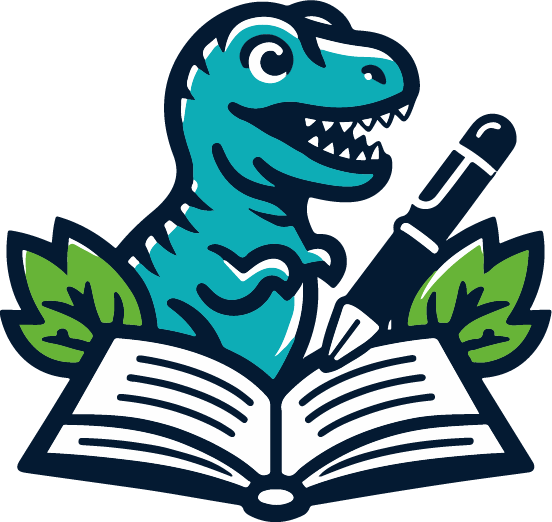
- Open-source system-level translation framework
- Provides fluent and natural translations utilizing LLMs
- Ensures privacy and security with local translation processes
- Capable of zero-shot in-task translations
- Utilizes QLoRA fine-tuned models for enhanced accuracy
- Employs both general and in-task specific translation memories and glossaries
- Incorporates preceding text in document-level translations for improved context understanding
- Combining QLoRA with in-task translation memory and glossary resulted in ~45% increase in aggregated WMT23 translation scores, benchmarked against the Mistral 7b Instruct model
- Demonstrated high recall for valid translation memories and glossaries, including previous translations and character names
- Surpassed the performance of the native TowerInstruct model in three (Ja<->En, Zh->En) out of the four WMT23 language direction tested
- Outperformed DeepL in translating the Japanese web novel "That Time I Got Reincarnated as a Slime" into Chinese using in-task RAG
- Japanese to Chinese translation improvements:
- +29% sacrebleu
- +0.4% comet22
- Japanese to Chinese translation improvements:
👉See the write-up for more details📜
Simply run:
pip install t-ragx
or if you are feeling lucky:
pip install git+https://github.com/rayliuca/T-Ragx.git
See the wiki page instructions
Note: you can access preview read-only T-Ragx Elasticsearch services at https://t-ragx-fossil.rayliu.ca and https://t-ragx-fossil2.rayliu.ca
(But you will need a personal Elasticsearch service to add your in-task memories)
Download the conda environment.yml file and run:
conda env create -f environment.yml
## or with mamba
# mamba env create -f environment.ymlWhich will crate a t_ragx environment that's compatible with this project
Download the requirment.txt file and run:
Use your favourite virtual environment, and run:
pip install -r requirment.txt
Initiate the input processor:
import t_ragx
# Initiate the input processor which will retrieve the memory and glossary results for us
input_processor = t_ragx.Processors.ElasticInputProcessor()
# Load/ point to the demo resources
input_processor.load_general_glossary("https://t-ragx-public.s3.us-west-004.backblazeb2.com/t-ragx-public/glossary")
input_processor.load_general_translation(elasticsearch_host=["https://t-ragx-fossil.rayliu.ca", "https://t-ragx-fossil2.rayliu.ca"])Using the llama-cpp-python backend:
import t_ragx
# T-Ragx currently support
# Huggingface transformers: MistralModel, InternLM2Model
# Ollama API: OllamaModel
# OpenAI API: OpenAIModel
# Llama-cpp-python backend: LlamaCppPythonModel
mistral_model = t_ragx.models.LlamaCppPythonModel(
repo_id="rayliuca/TRagx-GGUF-Mistral-7B-Instruct-v0.2",
filename="*Q4_K_M*",
# see https://huggingface.co/rayliuca/TRagx-GGUF-Mistral-7B-Instruct-v0.2
# for other files
chat_format="mistral-instruct",
model_config={'n_ctx':2048}, # increase the context window
)
t_ragx_translator = t_ragx.TRagx([mistral_model], input_processor=input_processor)Translate!
t_ragx_translator.batch_translate(
source_text_list, # the input text list to translate
pre_text_list=pre_text_list, # optional, including the preceding context to translate the document level
# Can generate via:
# pre_text_list = t_ragx.utils.helper.get_preceding_text(source_text_list, max_sent=3)
source_lang_code='ja',
target_lang_code='en',
memory_search_args={'top_k': 3} # optional, pass additional arguments to input_processor.search_memory
)Note: you could use any LLMs by using the API models (i.e. OllamaModel or OpenAIModel) or extending the t_ragx.models.BaseModel class
The following models were finetuned using the T-Ragx prompts, so they might work a bit better than some of the off-the-shelve models with T-Ragx
| Source Model | Model Type | Quantization | Fine-tuned Model |
|---|---|---|---|
| mistralai/Mistral-7B-Instruct-v0.2 | LoRA | rayliuca/TRagx-Mistral-7B-Instruct-v0.2 | |
| merged AWQ | AWQ | rayliuca/TRagx-AWQ-Mistral-7B-Instruct-v0.2 | |
| merged GGUF | Q3_K, Q4_K_M, Q5_K_M, Q5_K_S, Q6_K, F32 | rayliuca/TRagx-GGUF-Mistral-7B-Instruct-v0.2 | |
| mlabonne/NeuralOmniBeagle-7B | LoRA | rayliuca/TRagx-NeuralOmniBeagle-7B | |
| merged AWQ | AWQ | rayliuca/TRagx-AWQ-NeuralOmniBeagle-7B | |
| merged GGUF | Q3_K, Q4_K_M, Q5_K_M, Q5_K_S, Q6_K, F32 | rayliuca/TRagx-GGUF-NeuralOmniBeagle-7B | |
| internlm/internlm2-7b | LoRA | rayliuca/TRagx-internlm2-7b | |
| merged GPTQ | GPTQ | rayliuca/TRagx-GPTQ-internlm2-7b | |
| Unbabel/TowerInstruct-7B-v0.2 | LoRA | rayliuca/TRagx-TowerInstruct-7B-v0.2 |
All of the datasets used in the project
| Dataset | Translation Memory | Glossary | Training | Testing | License |
|---|---|---|---|---|---|
| OpenMantra | ✅ | ✅ | CC BY-NC 4.0 | ||
| WMT < 2023 | ✅ | ✅ | for research | ||
| ParaMed | ✅ | ✅ | cc-by-4.0 | ||
| ted_talks_iwslt | ✅ | ✅ | cc-by-nc-nd-4.0 | ||
| JESC | ✅ | ✅ | CC BY-SA 4.0 | ||
| MTNT | ✅ | Custom/ Reddit API | |||
| WCC-JC | ✅ | ✅ | for research | ||
| ASPEC | ✅ | custom, for research | |||
| All other ja-en/zh-en OPUS data | ✅ | mix of open licenses: check https://opus.nlpl.eu/ | |||
| Wikidata | ✅ | CC0 | |||
| Tensei Shitara Slime Datta Ken Wiki | ☑️ in task | CC BY-SA | |||
| WMT 2023 | ✅ | for research | |||
| Tensei Shitara Slime Datta Ken Web Novel & web translations | ☑️ in task | ✅ | Not used for training or redistribution |